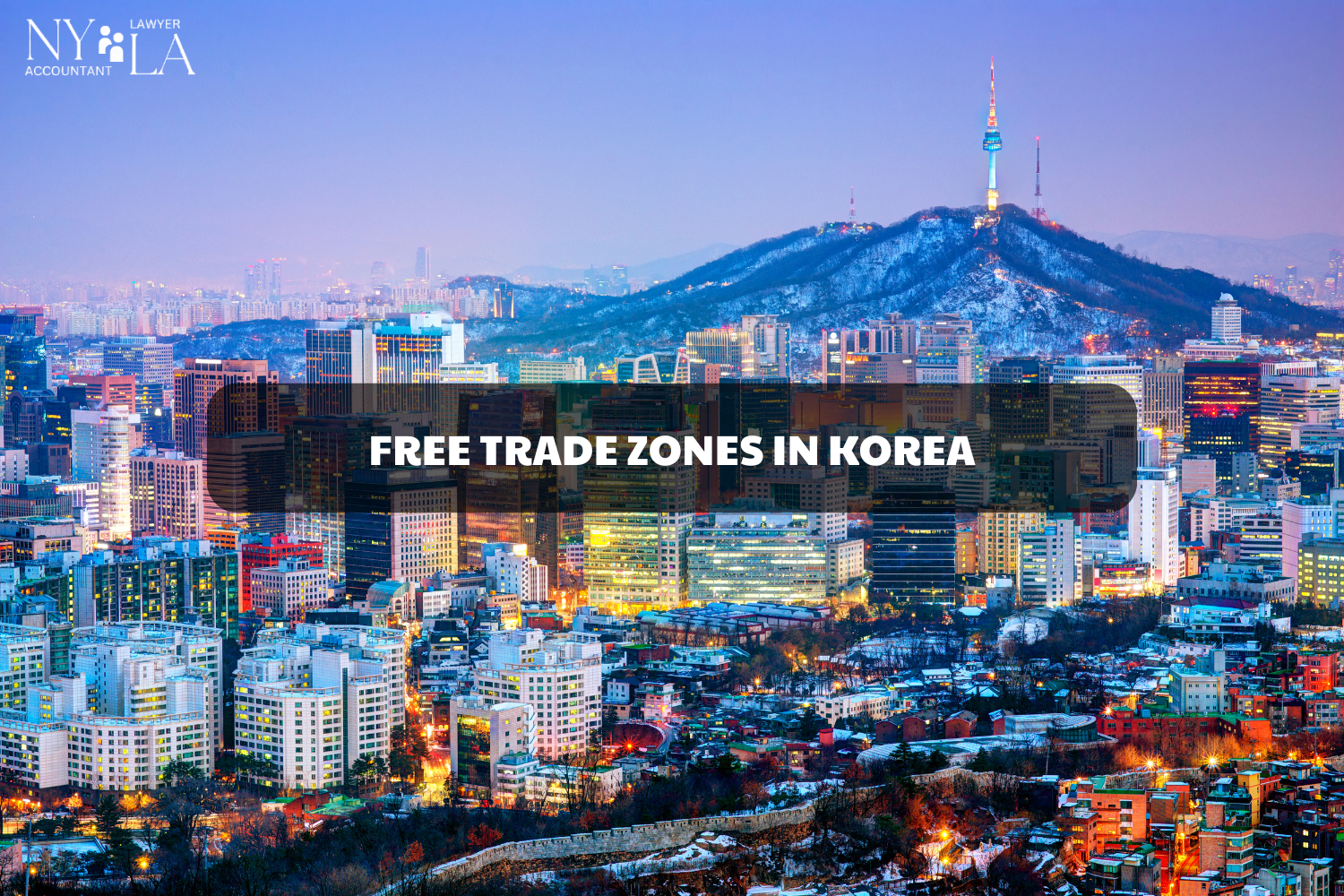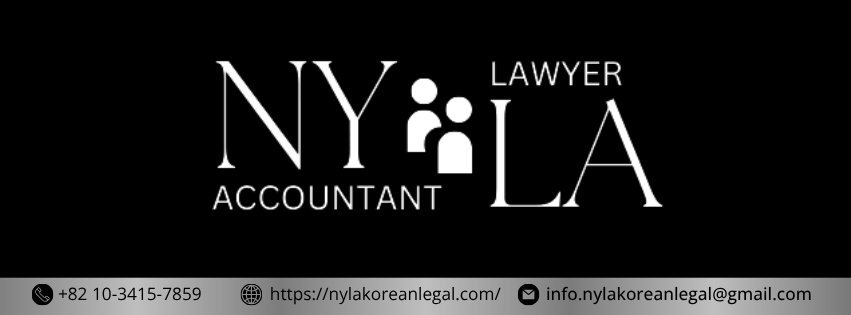Summary
- 1. Understanding Free Trade Zones in Korea: A Strategic Overview
- 2. Eligibility and Requirements for Occupying Free Trade Zones in Korea
- 3. Tax Benefits in Korea’s Free Trade Zones
- 4. Rental Fee Incentives for Foreign-Invested Companies in Free Trade Zones
- 5. Strategic Advantages of Free Trade Zones in Korea for Export-Oriented Businesses
- 6. The Role of Free Trade Zones in Korea’s Industrial Development Strategy
- 7. Conclusion: Maximizing Opportunities in Korea’s Free Trade Zones
- 8. About NYLA – Korean Legal Office
1. Understanding Free Trade Zones in Korea: A Strategic Overview
Free Trade Zones in Korea represent designated areas aimed at attracting manufacturing companies, logistics providers, and service businesses by offering favorable regulatory and tax environments. Located primarily within industrial complexes, ports, and airports, these Free Trade Zones serve as critical hubs for boosting Korea’s export-driven economy.
The Korean government strategically uses Free Trade Zones to foster industrial growth, attract foreign direct investment, and promote international trade. By providing tax reductions, exemptions, and tariff advantages, these zones make it easier for companies, especially those involved in export activities, to operate efficiently and cost-effectively.

2. Eligibility and Requirements for Occupying Free Trade Zones in Korea
Not all businesses qualify to operate within Korea’s Free Trade Zones. The government sets clear requirements to ensure these zones support sectors that drive the economy forward. Eligible companies typically include:
-
Manufacturing companies primarily engaged in exporting products. This includes Korean offshore companies seeking to repatriate operations.
-
Wholesale companies focusing mainly on export and import transactions.
-
Knowledge-based service companies that contribute intellectual property and technological innovation.
-
Foreign-invested enterprises involved in manufacturing or knowledge-based services.
-
Logistics companies specializing in cargo handling, transportation, storage, and exhibition services.
-
Auxiliary companies providing financial, customs, or data processing support to zone occupants.
By targeting these specific business types, Korea’s Free Trade Zones maintain a robust ecosystem where complementary industries thrive, enhancing international trade flows and technological advancement.
3. Tax Benefits in Korea’s Free Trade Zones
One of the most attractive features of Free Trade Zones in Korea is the comprehensive tax incentives designed to lower operational costs and stimulate investment. Key tax benefits include:
-
Tax Deductions or Exemptions: Companies located in Free Trade Zones may enjoy up to 100% exemption on local taxes such as acquisition and registration taxes for as long as 15 years. This considerable relief reduces the upfront financial burden and encourages long-term investment.
-
Tariff Advantages: When importing goods from overseas to be used inside Free Trade Zones—whether as raw materials, building supplies, or facility components—businesses face no tariffs. Additionally, tariffs on domestic goods imported into Free Trade Zones can be exempted or refunded if reported correctly. This streamlined tariff structure helps companies avoid complex customs procedures and lowers overall production costs.
-
Zero Value-Added Tax (VAT) Rate: In Free Trade Zones, VAT is set at zero for domestic goods imported and reported within the zone, as well as for foreign goods or services supplied among companies located inside these zones. This zero-tax VAT policy simplifies taxation and cash flow management for companies.
These tax benefits are pivotal in positioning Korea’s Free Trade Zones as competitive and investor-friendly environments.
4. Rental Fee Incentives for Foreign-Invested Companies in Free Trade Zones
To further attract foreign capital, the Korean government offers substantial rental fee reductions or exemptions in Free Trade Zones. These incentives are available to foreign-invested companies where at least 30% of the investment ratio is foreign or the largest shareholder is a foreign national. Specific conditions apply:
-
100% Rental Fee Exemption is granted for up to 10 years to companies engaged in technology businesses related to new growth engine industries with investments of at least USD 1 million.
-
Companies involved in parts and materials businesses with investments over USD 5 million also qualify for a 100% rental fee exemption.
-
Manufacturing companies investing at least USD 5 million are eligible for a 75% reduction in rental fees.
Such incentives make Free Trade Zones in Korea particularly appealing to foreign investors seeking to reduce operational costs while benefiting from access to Korea’s advanced industrial infrastructure.
5. Strategic Advantages of Free Trade Zones in Korea for Export-Oriented Businesses
The establishment of Free Trade Zones aligns perfectly with Korea’s export-led economic model. By offering businesses exemption from tariffs and VAT, simplified customs procedures, and significant tax relief, these zones reduce barriers to international trade.
For companies importing raw materials to manufacture export products, Free Trade Zones eliminate cumbersome tax refund processes and provide financial predictability. Moreover, the concentration of export-driven companies in these zones fosters synergies and collaboration opportunities, further boosting competitiveness.
Foreign investors looking to tap into Korea’s manufacturing and logistics markets will find Free Trade Zones an efficient gateway with a strong legal framework and attractive fiscal policies.
6. The Role of Free Trade Zones in Korea’s Industrial Development Strategy
Free Trade Zones contribute substantially to Korea’s broader industrial and technological development goals. By encouraging knowledge-based services and innovation-oriented companies to operate within these zones, Korea is nurturing high-value sectors alongside traditional manufacturing.
This integration promotes technology transfer, advanced research, and development activities, and international cooperation. It also supports the government’s vision to elevate Korea as a global leader in cutting-edge industries while maintaining a competitive export market.
7. Conclusion: Maximizing Opportunities in Korea’s Free Trade Zones
In summary, Free Trade Zones in Korea offer a well-structured environment with multiple incentives tailored to attract manufacturing, logistics, and knowledge-based service companies. Through tax exemptions, tariff benefits, and rental fee reductions, the government fosters a dynamic ecosystem conducive to export growth and foreign investment.
Companies interested in expanding operations or entering the Korean market should consider Free Trade Zones a strategic option. By leveraging these programs, businesses can minimize costs, optimize supply chains, and gain access to one of Asia’s most advanced industrial platforms.
Understanding the eligibility criteria, benefits, and regulatory framework of Free Trade Zones in Korea is essential for making informed investment decisions and achieving sustainable growth in the global economy.
8. About NYLA – Korean Legal Office

■ NYLA – Your Trusted Legal Partner in Korea
At NYLA, we understand that the success of foreign businesses in Korea requires not only a solid business strategy but also reliable legal support. With a team of experienced Korean attorneys and legal professionals, NYLA provides tailored legal services for companies, investors, and individuals operating or planning to establish a presence in Korea.
We support our clients throughout the entire business journey with comprehensive services, including:
- Legal consultation on company establishment, taxation, and immigration;
- Advice on commercial real estate, franchising, and product distribution;
- Support in human resources, marketing, and business strategy.
In addition to legal advisory, NYLA also represents clients in civil litigation cases related to business, labor, marriage, family, and inheritance to ensure their rights and interests are fully protected.
■ Contact NYLA

If you’re a foreign business or individual looking for a reliable legal partner in Korea, NYLA is here to help. We are committed to delivering effective, practical, and personalized legal solutions for every client.
With a proven track record of assisting hundreds of international clients, our team is equipped to help you navigate complex legal challenges—whether it’s commercial disputes, contract issues, or foreign investment guidance.
Don’t let legal matters hold you back. Let NYLA be your trusted guide in the Korean market.
■ Get in touch with NYLA for expert legal support
| Website: https://nylakoreanlegal.com/
FB: https://www.facebook.com/nyla.koreanlegal Tiktok: https://www.tiktok.com/@nylakoreanlegal Youtube: https://www.youtube.com/@NYLA-xd8qx Email: info.NYLAkoreanlegal@gmail.com SĐT: +82 10-3415-7859 |
 |






















































